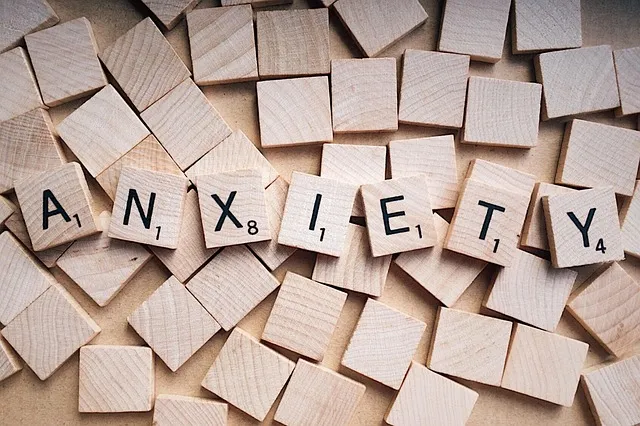Mental illness stigma significantly impacts individuals and communities in Westminster, hindering access to mental health support. Organizations like Kaiser play a crucial role by offering educational initiatives and services that promote mental health awareness. Breaking down barriers requires open dialogue and shared experiences, as seen in Stress Management Workshops led by advocacy groups. Westminster's progressive policies prioritize mental health accessibility, with mandatory staff training and risk assessment tools. Kaiser distinguishes itself through personalized wellness coaching programs, affordable options, and a comprehensive network of professionals, making it easier for residents to navigate "how to get mental health help." Reducing personal stigma is vital for self-care and recovery, empowering individuals through education and open conversations. Early intervention and prevention strategies, combined with effective measurement using evidence-based methodologies, are key to successful stigma reduction efforts.
Mental illness stigma remains a significant barrier to individuals seeking help. This article explores comprehensive efforts to reduce this stigma, focusing on key initiatives by Westminster, policies designed to destigmatize mental healthcare, and the role of organizations like Kaiser in facilitating access. We discuss personal strategies for stigma reduction, measured success through evaluation, and emphasize the importance of ongoing support. Understanding and addressing stigma is crucial for ensuring everyone has the resources to get the mental health help they need.
- Understanding Mental Illness Stigma: Causes and Impact
- Westminster's Role in Reducing Stigma: Policies and Initiatives
- How Kaiser Facilitates Access to Mental Health Services
- Strategies for Personal Stigma Reduction and Support
- Measuring Success: Evaluating Effective Stigma Reduction Efforts
Understanding Mental Illness Stigma: Causes and Impact

Mental illness stigma is a pervasive issue that has profound effects on individuals and communities alike. It stems from misconceptions, fear, and lack of understanding about mental health conditions, leading to discrimination and marginalization of those affected. In a place like Westminster, where diverse populations interact, reducing this stigma is crucial for fostering an inclusive environment. Organizations such as Kaiser play a significant role in promoting Mental Health Awareness through educational initiatives and support services.
The impact of stigma can be devastating, hindering people from seeking the help they need and perpetuating cycles of isolation. It often manifests as whispers and unspoken judgments, making it challenging for individuals to disclose their struggles openly. However, by participating in Stress Management Workshops offered by mental health advocacy groups, folks can gain insights into Self-Care Practices that promote overall well-being. Through open dialogue and shared experiences, communities like Westminster can break down barriers and create a supportive network where everyone feels comfortable accessing mental health resources.
Westminster's Role in Reducing Stigma: Policies and Initiatives

Westminster, as a progressive institution, plays a pivotal role in reducing the stigma associated with mental illness through robust policies and initiatives. They recognize that access to mental health services is paramount for well-being, and have implemented strategies to ensure how to get mental health help is straightforward and non-judgmental. Policies like mandatory training for staff on emotional regulation and conflict resolution techniques foster an environment of understanding and support.
Initiatives such as the Risk Assessment for Mental Health Professionals guide effective intervention while ensuring patient safety. By prioritizing these measures, Westminster demonstrates its commitment to creating a supportive ecosystem where individuals can seek help without fear of stigma or discrimination. This approach aligns with Kaiser’s goals of promoting mental health equity, emphasizing that accessible and stigma-free care is a fundamental right.
How Kaiser Facilitates Access to Mental Health Services

In Westminster, Kaiser stands out for its efforts to facilitate access to mental health services and reduce the stigma surrounding these issues. The organization prioritizes mental wellness coaching programs as a key component of its healthcare offerings. By integrating these programs into their development strategies, Kaiser ensures that individuals have accessible and affordable options for managing their mood and promoting overall mental health. This approach aligns with the broader goal of Mental Health Awareness, empowering people to take charge of their well-being.
Kaiser’s commitment is evident in its comprehensive network of professionals who provide personalized support tailored to individual needs. Patients can navigate these services easily, thanks to the organization’s user-friendly platforms and resources. Whether it’s through online counseling or face-to-face meetings, Kaiser ensures that how to get mental health help is straightforward for residents seeking assistance. Their efforts in this regard contribute significantly to fostering a supportive environment for those dealing with mental wellness challenges.
Strategies for Personal Stigma Reduction and Support

Reducing personal stigma around mental illness is a powerful step towards self-care and recovery. Individuals can start by educating themselves about various mental health conditions, dispelling myths, and learning from reliable sources. The Westminster community, for instance, offers numerous resources like Kaiser Permanente, which provides accessible mental health services. Engaging in open conversations with trusted friends or family members can also help break the silence and foster understanding.
Additionally, coping skills development plays a crucial role in stigma reduction. Practices such as mindfulness meditation, therapy, or support groups allow individuals to navigate their emotions effectively. Empathy-building strategies, like actively listening and sharing personal experiences (if comfortable), further promote compassion and reduce judgment. For those struggling with depression, these efforts can be life-saving; early intervention and prevention are key to managing symptoms and improving overall well-being.
Measuring Success: Evaluating Effective Stigma Reduction Efforts

Measuring success is a crucial aspect of evaluating the effectiveness of stigma reduction efforts. It’s essential to establish clear metrics and indicators to assess progress and impact. By utilizing evidence-based methodologies, organizations can track changes in public perception, attitudes, and behaviors related to mental illness. For instance, conducting pre and post-campaign surveys can help identify shifts in knowledge, empathy, and willingness to seek help among the target audience. The Westminster How to Get Mental Health Help resources and Kaiser’s initiatives emphasize this by providing accessible guidance on recognizing signs of distress and connecting individuals with appropriate support systems.
Moreover, evaluating stigma reduction efforts should consider qualitative feedback through focus groups or interviews, allowing for a deeper understanding of personal narratives and experiences. Successful programs often incorporate a combination of strategies such as Healthcare Provider Cultural Competency Training, Community Outreach Program Implementation, and Mental Wellness Journaling Exercise Guidance to foster inclusive environments and reduce barriers to care. This holistic approach ensures that interventions are tailored to diverse communities, leading to more significant and sustainable reductions in mental illness stigma.
Mental illness stigma reduction is a multifaceted endeavor that requires collective efforts from institutions, policymakers, and individuals. As discussed, Westminster plays a pivotal role in this process through its policies and initiatives, while organizations like Kaiser facilitate access to mental health services, breaking down barriers for those seeking help. Personal strategies for stigma reduction and support are also crucial, enabling individuals to advocate for themselves and others. By measuring success through evaluation, we can identify effective stigma reduction efforts and continue to enhance our understanding of how to get mental health help, ultimately fostering a more inclusive society.






